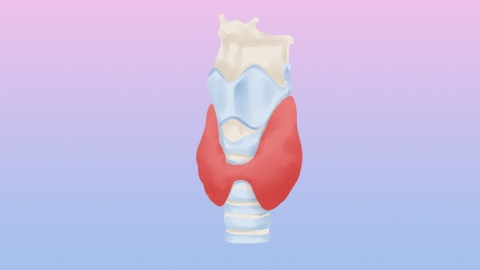What are the treatment methods for hyperthyroidism?
Hyperthyroidism, also known as overactive thyroid. Generally, the main treatment approaches for hyperthyroidism include lifestyle modifications, antithyroid drug therapy, radioactive iodine-131 treatment, subtotal thyroidectomy, and symptomatic supportive treatment. Specific details are as follows:
1. Lifestyle Modifications
Patients should reduce iodine intake by avoiding iodine-rich foods such as kelp and nori, and use non-iodized salt. Adequate rest must be ensured, with avoidance of excessive fatigue and mental stress. A regular diet rich in protein and vitamins helps maintain balanced nutrition, providing a foundation for recovery.

2. Antithyroid Drug Therapy
This approach controls the condition by inhibiting the synthesis of thyroid hormones. Commonly used medications include methimazole tablets, propylthiouracil tablets, and carbimazole tablets. These drugs reduce the production of thyroid hormones and help restore normal thyroid function. Regular monitoring of thyroid function, complete blood count, and liver function is required during treatment.
3. Radioactive Iodine-131 Therapy
This treatment uses beta radiation emitted by radioactive iodine to destroy thyroid tissue, thereby reducing thyroid hormone secretion. Over time, the thyroid gland gradually atrophies and hormone levels decline. It is suitable for patients who respond poorly to medication or experience recurrence. However, hypothyroidism should be carefully monitored after treatment.
4. Subtotal Thyroidectomy
This surgical procedure involves removing part of the thyroid gland to reduce the source of hormone secretion. An appropriate amount of thyroid tissue must be removed—enough to control the disease while avoiding excessive removal that could lead to hypothyroidism. It is typically recommended for patients with significant goiter or compressive symptoms. Postoperative wound care is essential to prevent infection.
5. Symptomatic and Supportive Treatment
For symptoms such as palpitations and hand tremors, medications like propranolol tablets, atenolol tablets, and metoprolol sustained-release tablets can be used to provide relief. These drugs slow heart rate and reduce symptoms of sympathetic nervous system overactivity, improving patient comfort. Dosage should be adjusted according to symptom severity.
In addition, patients must follow medical advice strictly during treatment and undergo regular thyroid function check-ups to allow timely adjustments to the treatment plan. If adverse drug reactions or changes in condition occur, prompt medical attention is necessary.







